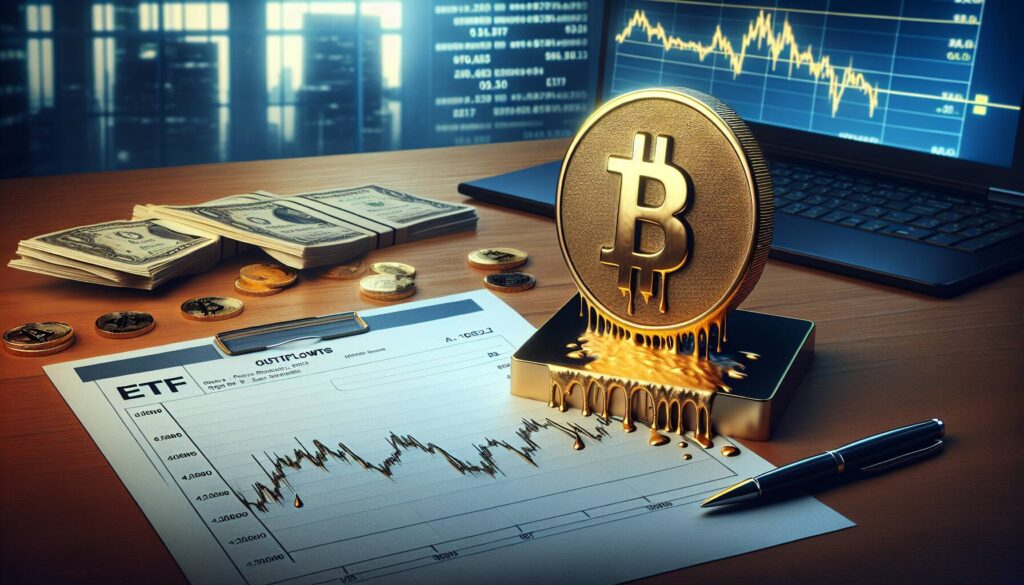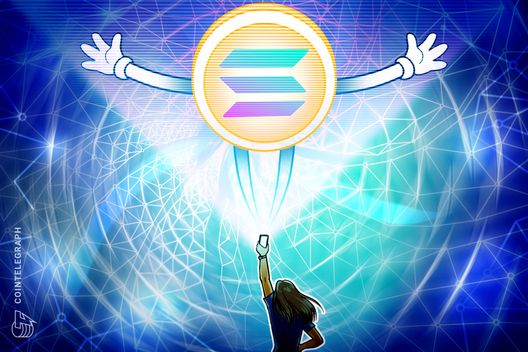In a significant maneuver within the cryptocurrency landscape, Mike Novogratz’s investment firm, Galaxy Digital, has reportedly swapped approximately $100 million worth of ether (ETH) for solana’s SOL. This strategic shift, uncovered by Wu Blockchain through on-chain data, highlights a notable transition as Galaxy moved 65,600 ETH—equating to around $105 million—to Binance and simultaneously withdrew 752,240 SOL, valued at approximately $98.37 million.
Market experts are speculating on the reasons behind this substantial exchange. A recent report from Standard Chartered indicates that ETH is facing a “structural decline,” prompting a reassessment of its future potential. In light of this, the bank notably revised its year-end price target for the asset downward. Supporting this narrative, data indicates that over the past month, while SOL has experienced an uptick of 8%, ETH has decreased nearly 20%.
Further lending weight to the analysis from Standard Chartered, emerging blockchain metrics reveal that Solana is outpacing Ethereum in various aspects. For instance, a Dune dashboard reveals that Solana’s decentralized exchange (DEX) volume has surged past $500 billion over the last three months, compared to Ethereum’s less than $400 billion. Active addresses on Solana have exceeded an impressive 220 million, starkly contrasting with the over 80 million active addresses reported for Ethereum and its Layer-2 counterparts.
“All collected taxes will be used to repurchase ETH and burn it in a fully decentralized manner,” proposed Tron’s Justin Sun, referencing one potential strategy to reverse Ethereum’s current trajectory.
In this evolving ecosystem, the anticipated impact of tokenized real-world assets is poised to potentially stabilize Ethereum’s situation, as indicated in the same Standard Chartered note. Meanwhile, Ether ETFs have witnessed a concerning outflow, with nearly $600 million withdrawn from these investment products over the previous two months, suggesting investor unease.

Galaxy Digital Swaps ETH for SOL: Impact on the Crypto Market
Recent developments regarding Galaxy Digital’s cryptocurrency transactions reveal significant shifts in the market. Here are the key points:
- Significant Swap: Galaxy Digital has exchanged approximately $100 million worth of ether (ETH) for solana (SOL).
- On-Chain Data Insights: The firm transferred 65,600 ETH to Binance while withdrawing $98.37 million in SOL.
- Market Performance: In the past month, SOL has increased by 8%, while ETH has experienced a decline of nearly 20%.
- Investment Strategy: Galaxy’s shift may be a response to the “structural decline” of ETH as noted by Standard Chartered, which lowered its ETH price forecast.
- Blockchain Activity: Recent metrics show that Solana’s transactions have surpassed Ethereum’s, with Solana logging over $500 billion in DEX volume compared to Ethereum’s less than $400 billion.
- Active User Base: Solana boasts over 220 million active addresses, significantly higher than Ethereum’s 80 million across both Ethereum and its Layer-2 solutions.
- Potential Solutions for ETH: Ideas to reverse ETH’s decline include a proposed tax on Layer-2 transactions meant to repurchase and burn ETH, though it has not been formalized into an Ethereum Improvement Proposal (EIP).
- Investor Exit: Recent flow data indicate that nearly $600 million has been withdrawn from Ether ETFs over the past two months.
A shift in investment strategies among major players like Galaxy Digital could signal changes in how both retail and institutional investors approach cryptocurrencies.
Galaxy Digital’s Strategic Shift: A Bold Move in the Crypto Landscape
Mike Novogratz’s Galaxy Digital has made headlines by swapping a significant chunk of its ether holdings for solana, prompting discussions about the evolving dynamics in the cryptocurrency market. With a $100 million stake in solana through this swap, Galaxy is positioning itself amid uncertain terrains for Ethereum, particularly highlighted by Standard Chartered’s bearish outlook where it cites a “structural decline” for ETH. This shift showcases not only Galaxy’s agile investment strategy but also emphasizes the increasing competition between Ethereum and Solana.
Competitive Advantages: The most notable advantage of Galaxy’s move lies in its proactive response to market trends. With Solana showing an upward trajectory—marking an 8% increase recently—while Ethereum experiences a nearly 20% dip, Galaxy seems to be capitalizing on what many might see as a pivot opportunity. Solana’s burgeoning ecosystem has seen transaction volumes surpass Ethereum’s, indicating a potential shift in user preference and utility. This indicates a growing confidence among investors and enterprises in solana, positioning it as a viable alternative in the blockchain space.
Challenges and Disadvantages: However, this bold strategy may not come without risks. The broader economic environment, characterized by investor skepticism towards ETH resulting in substantial outflows from Ether ETFs, poses a threat. Furthermore, the long-standing reputation of Ethereum as the primary platform for decentralized applications (dApps) and its unmatched developer community creates significant hurdles for Solana. A rapid market shift could lead to volatility, and should Ethereum rebound due to potential innovations or recovery strategies, Galaxy’s liquidity could be jeopardized.
This developmental rivalry could benefit traders and investors looking to diversify their portfolios, particularly those drawn to Solana’s rising performance and technology. Meanwhile, it may create problems for traditional Ethereum supporters who could witness diminishing returns and increased competition. If significant portions of investment gravitate towards Solana, Ethereum’s reputation and participant base may face challenges, necessitating innovative proposals like the Layer-2 tax to rejuvenate its position in the market.

















